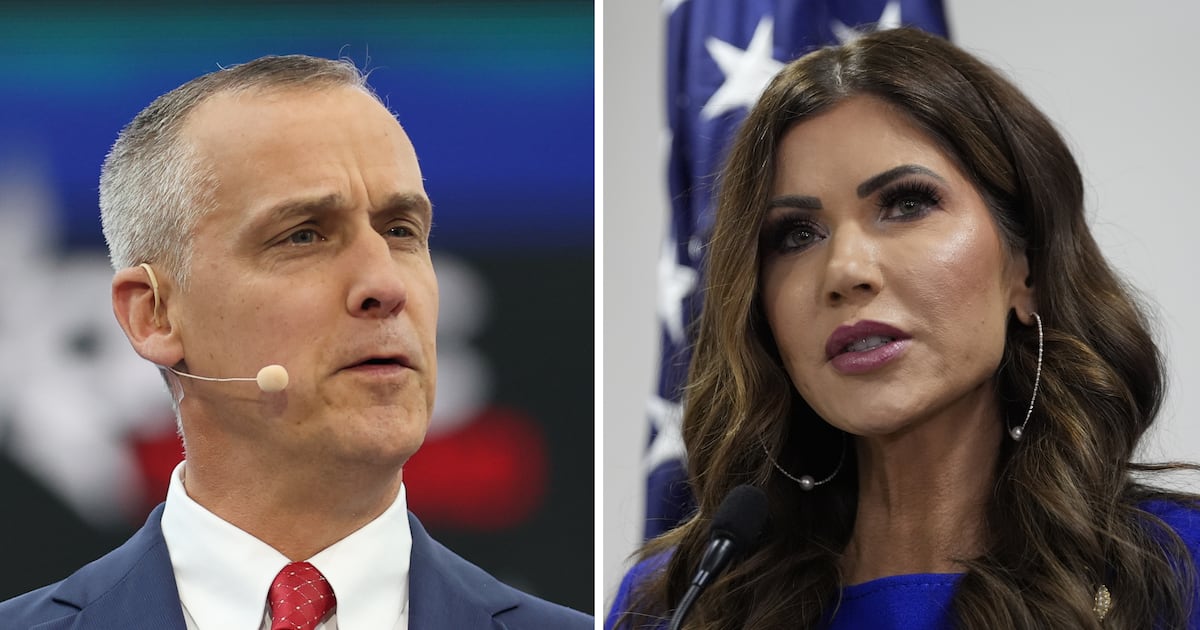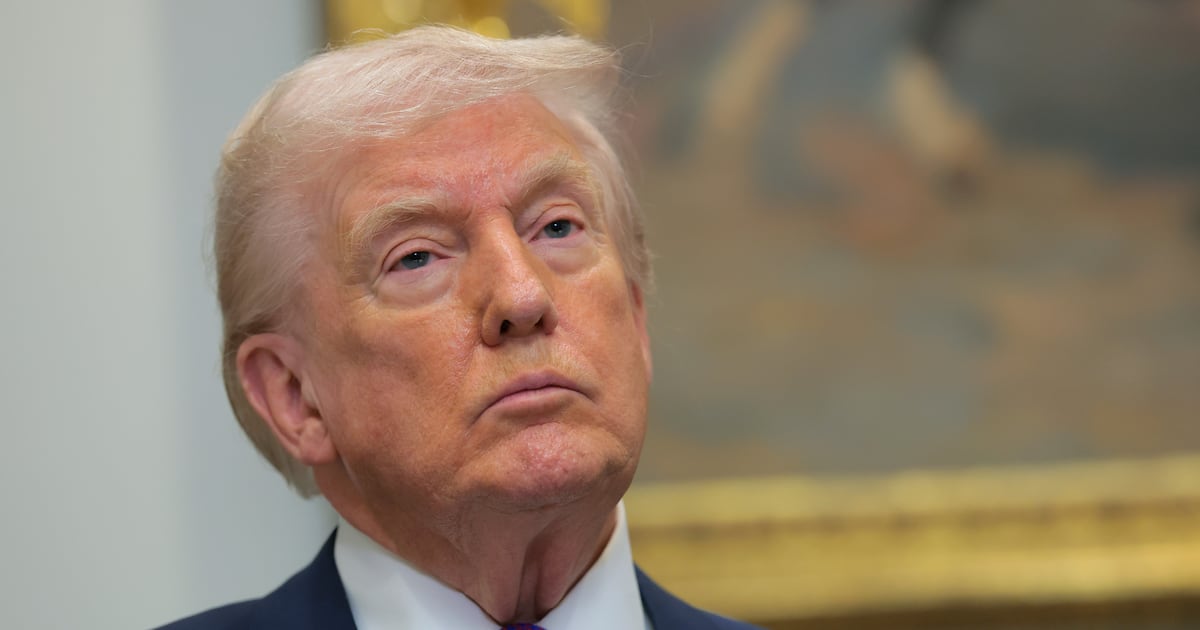The morning of Feb. 12, members of the Senate Homeland Security Committee filed into their Capitol Hill committee chambers for a scheduled hearing about the rapidly growing outbreak of the novel coronavirus.
On that day, the number of total coronavirus cases in the world had crossed 60,000 and more than 1,000 were dead from the disease, nearly all in mainland China. But there were 14 cases in the United States, and top officials from the Centers for Disease Control were warning the coronavirus could “gain a foothold.”
Against that backdrop, the leaders of the Senate panel—its chairman, Sen. Ron Johnson (R-WI), and its top Democrat, Sen. Gary Peters (D-MI)—invited officials from the CDC and Department of Homeland Security to come testify in public about the dangers posed by the virus and what the federal government was doing to prepare for it.
The Trump administration ignored the request. The only current government official who testified was with the independent Government Accountability Office, a congressional watchdog with no real role in public health operations.
Democratic aides with knowledge of that Feb. 12 meeting told The Daily Beast that the administration offered various excuses for why they couldn’t send anyone relevant to the Hill. One of them, an aide recalled, was that the White House believed that sending briefers would take away from their ability to do “critical response work” and that accurate information would be hard to convey “because things were changing so rapidly at the time.”
“Part of it was, they were figuring out who was in charge,” said another Democratic aide. “But also, apparently, they didn't want mid-level people getting out in front of [HHS Secretary Alex] Azar.”
Johnson and Peters couldn’t conceal their frustration when the committee’s “roundtable” came to order. “I’ll say up front: I’m disappointed we don’t have a representative from DHS or HHS/CDC here,” said Johnson, who admitted he thought he had convinced them to come. “I’ll share my disappointment as well,” said Peters. “Getting this information out in the public is really important.”
At the time, the refusal to provide public testimony looked like a classic case of an administration brushing off congressional oversight—an act that was so prevalent that it formed the basis of one the articles of impeachment against the president. More than a month later, it appears far more damaging than that: one of many costly missteps the White House made in failing to prepare the country for a forthcoming pandemic.
“The administration's refusal to work with Congress from the beginning of this crisis made America less safe,” said Leslie Dach, who helped head the Obama administration’s response to the Ebola crisis while at the Department of Health and Human Services. “We should have had the bills being considered today written and passed earlier so that relief could be on its way sooner. Members of Congress should have been empowered to educate our people, and to advocate for testing and increased help for our hospitals, not muzzled as part of the president’s desire to downplay the crisis.”
Since that hearing, coronavirus cases in the U.S. have skyrocketed to nearly 9,000 and the country’s normal functions have begun grinding to a halt. One of the major contributors to the problem currently at hand, experts note, is not just a lack of critical medical equipment but also of public awareness about the transmission and severity of the disease. Looking back, they argue, the Trump administration’s decision to keep information scarce and witnesses private played a damaging role.
The White House did not respond to a request for comment.
Indeed, the Feb. 12 roundtable was not even the first time the administration chose not to comply with—or in some cases, even respond—to Capitol Hill’s requests for witnesses or basic information.
On Feb. 5, the House Foreign Affairs Committee’s sub-panel on Asia convened what was Congress’ first public hearing on the coronavirus. There were no witnesses from the administration; instead, lawmakers heard from experts from Johns Hopkins University and the RAND Corporation, as well as Ron Klain, Obama’s point man on the Ebola outbreak.
Rep. Ami Bera (D-CA), the chair of the Asia sub-committee, said in his opening remarks that “we did ask the administration to come up and brief us, and unfortunately they did not send folks… We do believe the public is concerned here, and the more the administration could speak to the public and answer those questions, the better off we would all be.”
Looking back, Bera told The Daily Beast on Thursday that the administration missed a significant opportunity to inform lawmakers and the public what was happening.
“I know [National Institute of Allergies and Infectious Diseases director] Tony Fauci, I know [CDC director] Dr. Redfield and others,” said Bera, a physician who formerly was the chief medical officer for California’s capital city of Sacramento. “This wasn’t to be antagonistic, it was just to say, give us the best assessment of what’s going on in a public setting, where the public could know what’s going on.”
“I think not having administration officials being able to speak freely in public, in a hearing setting—we lost four to six weeks of time, at least,” said Bera. “That’s time we can’t get back. We are where we are.”
Bera wasn’t the only lawmaker who spent resources and manpower frantically trying to get real time information, only to fail to do so. On Feb. 4, days after Azar declared a public health emergency in the U.S. over the coronavirus, House Democrats asked the secretary to tell them what the administration needed to fight the disease.
“Further resources will be necessary to support an aggressive and comprehensive government-wide response to the 2019 novel Coronavirus, both domestically and internationally,” House Appropriations Committee Chair Nita Lowey (D-N.Y.) wrote to Azar. She urged the administration to give them a price tag and details for an “emergency supplemental appropriations” by Feb. 10.
But the appropriators got no response.
On Feb. 15, a group of Democratic Senators sent a letter to the Trump Administration demanding it submit an emergency supplemental funding request to address the coronavirus response. Once more, they didn’t hear back. In fact, it would take another nine days for the Trump administration to release a request for $2.5 billion in coronavirus funding. A bipartisan group of lawmakers ultimately blew past that request, anyway, appropriating nearly $9 billion for response efforts.
“We needed to get an assessment of what their needs were,” said a Democratic aide. “They just didn’t respond.”
The stonewalling didn’t end there. One senior Senate aide said their office “sent multiple letters to the Administration and have not received written responses on any of them.”
Even when administration officials did talk to the Hill in public—starting in late February—they presented less than full information so as to make the information exchanged useless. During a House Foreign Affairs subcommittee hearing in late February, Rep. Ted Lieu (D-CA) pressed Robert Redfield, the CDC director, about the centers’ testing capacity. Redfield’s reply conveyed no concerns whatsoever and never disclosed that the testing kits may have been contaminated. Looking back, Lieu said, a droplet of transparency in that moment could have potentially saved lives.
“Had the Trump Administration been more transparent with their massive testing problems, Congress and the private sector could have stepped in with help far sooner,” he explained. “We cannot get back the multiple weeks of lost time that allowed Covid-19 to spread undetected across America. Now we need to frantically try to catch up because the Administration had been flying blind for so long.”
Relations between the White House and the Hill haven’t been universally bad. The Senate aide whose boss sent a number of letters that didn’t get responses, noted that officials at various agencies had been in touch with their office in other forms: mainly in person and telephonic briefings.
And early in the coronavirus crisis, one congressional aide said, “the Administration was proactively reaching out to keep Congress updated on what was happening.” It was when the outbreak started to spread and it became clear that there were major problems with testing, the aide added, that “the Administration became less forthcoming and responsive.”
When questions mounted about testing issues, the aide said, the administration started “pushing back and canceling calls.”
Looking back, aides say, the biggest hurdle in terms of the public information campaign around coronavirus, was the administration’s insistence that much of their interactions with the Hill be kept secret. The first time top officials came to Capitol Hill to share information was Jan. 23—two days after the CDC announced the first COVID-19 case in the U.S.—in a private briefing for all senators.
Three weeks later, on the same day that the Senate Homeland Security Committee was stonewalled on its witness requests, Senators did hear from relevant top-level and public health administration officials. That briefing, again, was done behind closed doors.
And on the day that no public health officials were sent to testify before the House Foreign Affairs subcommittee, House lawmakers were provided a private briefing from top administration figures managing the response. That briefing was not even classified, fueling more head-scratching on the Hill as to why it was held behind closed doors.
A spokesperson for Bera, who chaired that Feb. 5 hearing, said that the administration explained it was unable to provide public testimony because of a two-week rule for clearing congressional testimony. “Given the urgency and rapidly evolving nature of the virus, we urged the Administration to take what they were giving Members of Congress in the closed door briefings and use it as public testimony for our hearing (since they said they needed two weeks to clear testimony),” the spokesman said in an email.
The administration didn’t bite.







